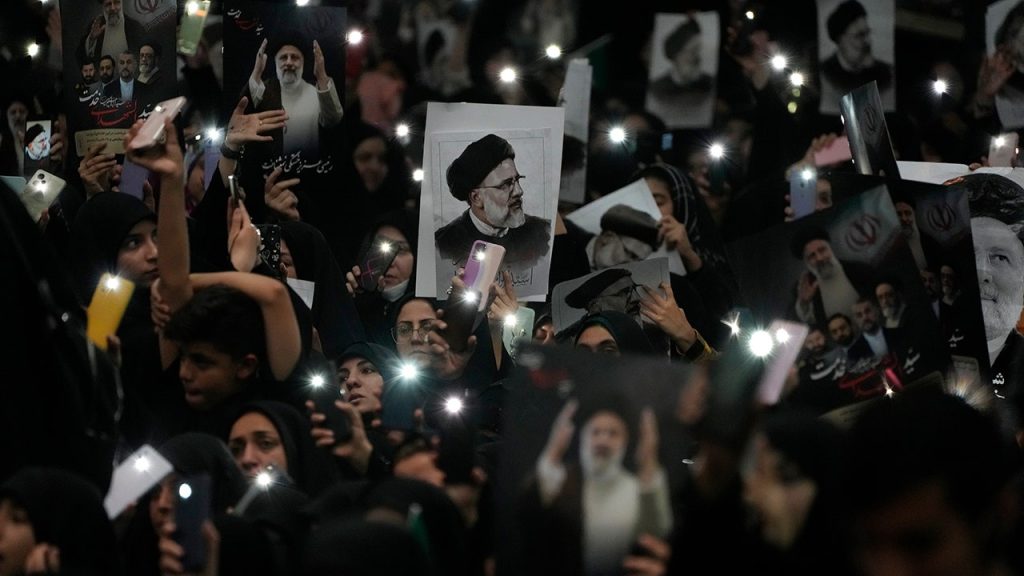Mourners chanted “Death to America” at the funeral service for Iranian President Ebrahim Raisi in Tehran following a helicopter crash that claimed his life, along with Iran’s foreign minister and others. The service, presided over by Iranian Supreme Leader Ayatollah Ali Khamenei, featured caskets draped in Iranian flags with pictures of the deceased displayed on them. A black turban was placed on Raisi’s coffin, symbolizing his direct lineage to the Islamic Prophet Muhammed. The crowd reached out to touch the coffins as Khamenei recited a prayer for the dead from the Quran before leaving the service, leaving acting president Mohammad Mokhber openly weeping nearby.
After the service, mourners carried the coffins on their shoulders out of Tehran University, chanting “Death to America” as they loaded them onto a semitruck for a procession through downtown Tehran. The top leaders of Iran’s Islamic Revolutionary Guard Corps and Hamas leader Ismail Haniyeh, who supports the Palestinian struggle against Israel, also attended the funeral. Haniyeh praised Raisi for his support of the Palestinian cause and described Hamas’ actions against Israel as an “earthquake in the heart of the Zionist entity.” Leaders from other Muslim-majority countries in the Middle East were also present at the funeral, expressing condolences and solidarity with Iran.
The Iranian regime declared five days of mourning after the helicopter crash, with mass demonstrations of mourning observed throughout the country. Critics of the regime have accused Raisi, also known as the “Butcher of Tehran,” of being authoritarian and responsible for human rights abuses. Raisi had been sanctioned by the U.S. government for his role in a crackdown on protests and mass executions of political prisoners in the past, with some Iranians celebrating his death in the streets despite warnings from authorities. The funeral service underscored the deep divisions within Iranian society over Raisi’s legacy and actions as a leader.
The presence of foreign leaders at the funeral, including those from Pakistan, Afghanistan, Iraq, and Egypt, highlighted the regional importance and influence of Iran despite international criticism of its human rights record and support for militant groups like Hamas. The chants of “Death to America” and “Death to Israel” at the funeral reflected the ongoing tensions between Iran and Western countries, particularly the U.S. and Israel. The funeral procession and speeches by foreign dignitaries reinforced the message of solidarity and defiance against perceived enemies of Iran and its allies in the region.
Despite the controversy surrounding Raisi’s legacy and actions, the funeral service served as a moment of mourning and remembrance for his supporters and followers. The outpouring of grief and demonstrations of solidarity from both within Iran and abroad highlighted the complex and nuanced nature of Iranian politics and society. The funeral also drew attention to the ongoing conflicts and rivalries in the Middle East, with Iran playing a significant role as a regional power broker and supporter of various militant groups. The legacy of Raisi and his policies will continue to shape Iran’s domestic and foreign policies in the years to come, with potential implications for regional stability and global security.


